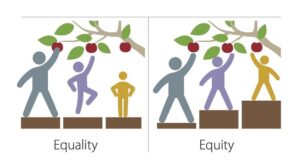Behaviour at school
The Governing Body and Staff at Pickering Community Infant and Nursery School believe that a safe, calm and positive environment are crucial in supporting our children to develop the behaviour and attitudes that are essential for learning. Our behaviour policy is rooted within our school motto ‘Learning, caring, sharing’ where we start with developing safe, trusting, respectful and supportive relationships.
Staff and other adults in school model the behaviour and attitudes that we expect towards all staff, children and parents and establish clear routines and expectations. Behaviour that does not meet the expectations should be addressed by establishing the reason for and the consequence of the behaviour, including the impact their actions may have on others. All children and adults will need varying levels of support to do this and our staff will work empathetically with each individual when doing this. The language used and the manner in which we speak to those involved will demonstrate to all involved that behaviour is a way of communicating.
This information is taken from our Behaviour Policy. A full copy of our Behaviour Policy and Guidelines is available on the Policies page of the website, which can be located through the ‘Our School’ menu.
Expectations
It is important to have high expectations for our children while recognising some children have specific needs. The following expectations cover all times of the school day and where children are representing the school out of hours or off site. Our motto ‘Learning, caring, sharing’ is the basis of these expectations, which are;
- Be respectful
- Be kind and helpful
- Be the best you
We work together to support the school community in understanding that being ‘fair’ is not about everyone getting the same (equality) but it is about everyone getting what they need (equity). We use an emotion coaching approach to behaviour regulation which encourages children to learn how to manage their own behaviour.
 It is everyone’s responsibility to challenge and provide support for children where these expectations are not met but equally to comment positively when they are.
It is everyone’s responsibility to challenge and provide support for children where these expectations are not met but equally to comment positively when they are.
Celebrating Meeting Expectations
From Reception, each class has an eight-step chart to celebrate children meeting behaviour expectations. At the end of the eight steps, children are awarded a certificate, one for each colour of the rainbow. Once the child reaches their blue certificate, they are also awarded a book along with their certificate which we aim to present during a school assembly.
In addition, class teachers award two certificates to children during weekly celebrations assemblies for specific examples of meeting or making progress towards our behaviour expectations.
All staff use verbal praise, stickers, stampers and class rewards as additional ways of celebrating behaviour.
Responses to not meeting expectations
At times, after using the above approaches and as a result of discussions with those involved in an incident, consequences are appropriate. These should be related and proportionate to the impact of an incident, for example, where a child has made a mess, they would tidy up.
The next steps
- If a child demonstrates inappropriate behaviour, the member of staff, or other adult, will highlight the behaviour to the child and clarify the expectation with them
- If this continues, one or more of the following strategies will also be used
- Additional adult support
- Wondering statement – “X, I’m wondering if sitting too close to Y is making it difficult for you to concentrate on your work. Come and sit here where I can help you.”
- Redirection – “X, please could you go to the office to see if I could have some more xxx.”
- If this continues, time in another safe space would then be used as a way to give children time away from a situation that is increasing stress or anxiety or is heightening other emotions in order to calm.
- If a child is requiring significant support in the lesson and the teacher is unable to effectively continue the learning for the class, another adult must be called for and this will usually be a member of SLT.
Reflection
Following instances where children have found managing their behaviour challenging, staff will reflect with them using an emotion coaching approach.

Attachment and Trauma Aware School
We have worked closely with North Yorkshire County Council Virtual School to achieve Attachment and Trauma Aware Schools status and to develop our Behaviour Policy. More information about this can be found on the following website https://www.traumainformedschools.co.uk/what-is-a-trauma-informed-school
Trauma informed schools use the knowledge of the importance of safe, trusting relationships as a basis of the way that they work with children and their families with the understanding that this is important for all children but particularly those who have suffered trauma. You can find more information about the impact of Adverse Childhood Experiences (ACEs) through the following training website https://www.acesonlinelearning.com/